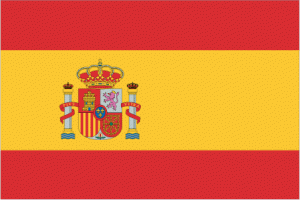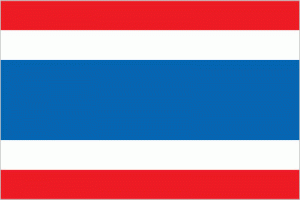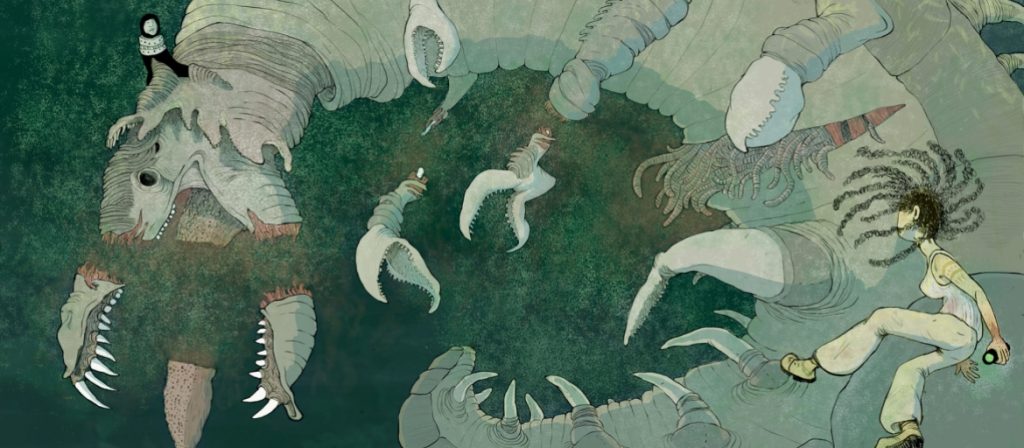
Sequential art by Lavinia Westfall
The number of comics-specific study programmes is on the rise in the United Kingdom and beyond, and we are making an effort to provide information on as many as possible here on downthetubes, with thanks to several academics and the institutions providing them, and many other sources – credited below.
This Page was Last Updated on Thursday 6th February 2020: updated details for Nicolas Verstappen’s courses in Thailand
Where possible, I have tried to link directly to course pages, but for the “Comic-Inclusive Programme” section I have in places linked to the institution home page, as in some cases web links have been changed when taken on by new staff or due to web site re-design
Please use the contact form below to provide information for this page, thank you!
Asking the question “Why Comics Studies?” is like asking the question “Why Cinema, Television, Game, or Media Studies?”
Promoting the Spring 2011 Edition of Cinema Journal, which featured An article by Angela Ndalianis on reasons for Comic Studies, Project Muse noted:
As a medium, comics are older than film, television, and video games, and yet there has been resistance from within the academy to the serious study and analysis of this medium. While there are many proto-comic examples, as a phenomenon of mass culture the comic form is believed to have originated in 1894. ‘Hogan’s Alley’, drawn by Richard F. Outcault, began as a single-panel comic first published in Truth magazine in 1894, and one of its characters, the Yellow Kid, would soon become the main character in what were the first comic strips. 1 Others followed in the Yellow Kid’s wake, including ‘The Katzenjammer Kids’ (1897), created by Rudolph Dirks and drawn by Harold H. Knerr, and the astounding work of Winsor McCay, whose early comic strips included ‘Tales of the Jungle Imps’ by Felix Fiddle (1903), ‘Dream of the Rarebit Fiend’ (1904-1913), ‘Little Sammy Sneeze’ (1904-1906), and ‘Little Nemo in Slumberland'(1905-1914).
Perhaps the negative attitude toward comics has historical roots tied specifically to the comic book form. In Western culture, the comic book’s early association with the superhero genre (with the introduction of Superman in Action Comics in 1938) brought with it a large, youth-oriented audience. Despite its immense popularity, the public perception for a long time was that comics were a kid’s medium-or, more specifically, a young boy’s medium. As such, it was generally perceived (in higher circles, of course) as the lowliest of popular culture media.
While the article focuses on US comics, the sentiments justifying the study of the medium can are applicable to comics globally.
There is no formal apprenticeship scheme for comics writers, artists or editors in the UK but there are a growing number of British colleges offering courses and studies in the comics form.
If you’re a comics professional or educator, you may want to check out the Cartoon Classroom, which aims to provide a means of centralising all information available on the study of cartooning and sequential art in the UK and Ireland, and to facilitate easy access to tutors in these subjects for all recognised educational institutions.
The Cartoon Classroom notes that there are very few specialised courses entirely devoted to the study of cartoons or sequential art, but lessons in creating storyboards – the preparatory drawings used in TV and film-making – are common to many, and can help in learning how to create sequential art for other purposes.
Generally, illustration courses, not listed on this page, do offer a good option for any art college student wishing to pursue a future in comics or cartoons. If you study how to draw well, you can use that skill in any way you want to – to show the funny or the fantastic, the serious or the silly.
Comics Studies Organisations and Major Useful Reference Points
The British Consortium of Comics Scholars
Web: britishcomicsscholars.wordpress.com
This group is made up of comics post-graduates and doctoral students from Brighton, Sussex, UAL, Coventry and elsewhere, who meet four times a year as a book group to discuss a recent academic book on comics. Although the website hasn’t been updated for some time, it’s still going and looking for new members
The Canadian Society for the Study of Comics
Web: comics-scholars.com
First formed in October of 2010 by Sylvain Rheault of the University of Regina, the CSSC/SCEBD is a national, bilingual scholarly association that promotes the academic study of comics. The CSSC/SCEBD is a venue for Canadian and international scholars to discuss all aspects of comics as an art form and cultural phenomenon.
The Cartoon Classroom
Web: www.cartoonclassroom.org
If you’re a comics professional or educator, you may want to check out the Cartoon Classroom, which aims to provide a means of centralising all information available on the study of cartooning and sequential art in the UK and Ireland, and to facilitate easy access to tutors in these subjects for all recognised educational institutions.
The Comics Forum
Web: comicsforum.org
UK site discussing the educational value of comics. Comics Forum was established in 2009 as part of Leeds’ annual sequential art festival Thought Bubble, which takes place at various venues across the city every November. Taking the festival’s emphasis upon the educational value of comics as its starting point, Comics Forum aims to increase the visibility and accessibility of comics scholarship through an academic conference that brings together scholars, artists and fans in a spirit of mutual cooperation and development. The Comics Forum website was established in 2011, and regularly publishes articles on a wide range of topics. The site also hosts regular columns on comics scholarship in Germany, Manga Studies and a monthly news review. Comics Forum provides a range of scholarly resources, including a directory of comics scholars, documentation from affiliated conferences and a selection of digital texts.
The Comics Grid
Web: www.comicsgrid.com
The Comics Grid: Journal of Comics Scholarship is an open access, open peer review academic journal dedicated to comics scholarship. The journal aims to make original contributions to the field of comics studies and to advance the appreciation of graphic narrative.
ComicResearch.org
Web: www.comicsresearch.org/academic.html
This page collects links to various resources of interest to those who study or teach comics in the classroom. Another significant collections of links may be found at the web site of the Comics Scholars Discussion List. If you have suggestions for more resources to list here, please contact us.
Comics Studies Society Graduate Student Caucus
Web: gradcaucus.comicssociety.org
Founded in 2014, the Comics Studies Society is the first learned society in the United States focused on the scholarship of comic books, comic strips, graphic novels, and all other kind of graphic narratives. It aims to promote and widen research and teaching on comics by providing an institution that supports interdisciplinary teaching and research in comic studies and the recruitment and development of a diverse group of new scholars in order to build the field.
The Comics Studies Society
Web: comicssociety.org
The Comics Studies Society is an interdisciplinary society open to all who share the goals of promoting the critical study of comics, improving comics teaching, and engaging in open and ongoing conversations about the comics world.
Graphic Brighton
Web: graphicbrighton.wordpress.com
An annual conference that mixes talks by academics, students and comic creators every year, curated by Panel Borders’ Alex Fitch and Univerity of Brighton’s Barbara Chamberlain.
Graphic Medicine
Web: www.graphicmedicine.org
A community of academics, medical practitioners and comic creators, the Graphic Medicine website was started in 2007 by Ian Williams, a physician and artist from North Wales. The site explores the interaction between the medium of comics and the discourse of healthcare
International Comics Arts Forum
Web: www.internationalcomicartsforum.org
ICAF actively seeks collaboration with scholars, historians, critics, teachers, journalists, curators, artists and comics professionals from around the world. Each year they aim to create a supportive, collegial environment, one in which discussion can flourish, with the larger goals of enabling new work within the international scholarly community and inspiring greater scholarly and public appreciation of comic art
Oxford Comics Network
Web: www.torch.ox.ac.uk/comics
Making use of TORCH’s interdisciplinary platform, ‘Comics and Graphic Novels: The Politics of Form’, brings students, critics and practitioners from a variety of disciplinary backgrounds to explore the power, politics and potential of the comics form
Spin Weave and Cut
Comics Programs Page: spinweaveandcut.com/comics-programs
Nick Sousanis is a comics artist and educator, and a professor of Humanities & Liberal Studies at San Francisco State University. His brilliant Spin Weave and Cut site provides an invaluable resource for comic studies and more, and the linked page includes information on Scholarships and Awards for Comic Creators
UK Comic Scholars
A mailing list circulates information regarding scholarly activity around comics, manga and graphic novels across a number of disciplines and institutions in the UK – sign up here
University of the Arts London – Comics Research
Web: comicsresearch.arts.ac.uk
Founded by a number of comics doctoral students, based at London College of Communication, UAL and funded by LCC Design School and Research Office, the Comics Research Hub (CoRH) brings together world-leading academics from across the six colleges that make up UAL, and highlights the resources the university holds in its archives, as well as providing a context for the wealth of ongoing comics research at UAL
University of London – Comics, Games & Media Research Group
Web: blogs.city.ac.uk/hcidcomicsgames
Founded by Ernesto Priego and Stuart Scott by the Comics, Games & Media Research Group is dedicated to exploring the interconnections between interaction design and narrative media. The Group’s membership is comprised by academic staff and research students at the Centre for Human-Computer Interaction Design and the City Interaction Lab at City, University of London.
The group is particularly interested in narrative and speculative design activities that employ a variety of comics, games and related media as components of interaction design thinking.
Short Courses
The Graphic Novel
The Arvon Foundation, Shropshire
Web Link: www.arvonfoundation.org
For over fifty years Arvon has been the UK’s home of creative writing, with three centres, in Devon, Shropshire and Yorkshire. Their residential courses and retreats, led by highly acclaimed writers, span poetry to playwriting, song to screenplay, fact to fiction, starting to finishing – and they offer grants to help with course fees for those who need it. Each year, over 40 of Arvon’s courses are with vulnerable groups and schools, from young people who have experienced bullying to adults recovering from an addiction. They also work closely with teachers to support their professional development. To ensure our doors stay open to all, they rely on donations from charitable trusts and individuals.
Comic Studies Programmes in Canada
Carleton University – RoCCET Fellowship for MA/PHD Comics Studies
Further Information: www.benjaminwoo.net/news/2019/10/announcing-the-roccet-lab-and-fellowships | Applications (PDF)
Comic Studies Programmes in Spain
University of Valencia – Master in Comics and Education
Further Information: postgrado.adeituv.es/es/cursos/area_de_ciencias_de_la_educacion-4/comic-educacion/datos_generales.htm
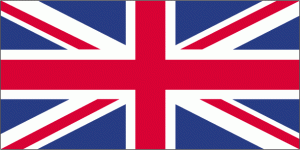
Comics Studies Programmes in the UK
University of Brighton
The University of Brighton counts Comics Laureate Hannah Berry among its alumni.
The University runs an MA in Sequential Design / Illustration – which isn’t exclusively comics, but includes teaching about the medium; past degree shows for the course suggests about a quarter of the graduates make comics (with the rest creating children’s illustration, animation, video games).
There’s a module available to BA (Hons) English Language / Literature and Creative Writing students called “Image and Text: The Language of Comics”. Run by Senior Lecturer Barbara Chamberlain, this is a core module for English Language and Creative writing second years but is also open to other students in the School.
In February 2020, Barbara told us the module has been running for about six years now “and gets bigger every year (much to my delight – it’s my favourite module!)… a lot of students go on to focus on comics in some way for dissertation and we have even had someone go on to PhD as a result.”
University of Dundee MA in Comics and Graphic Novels
Further Information: www.dundee.ac.uk/postgraduate/comics-graphic-novels-mdes
University of East Anglia MA in Comics Studies
Further Information: www2.uea.ac.uk/study/postgraduate/taught-degree/detail/ma-comics-studies | Twitter @comicsuea
Falmouth University
Offers both an Illustration: BA (Hons) and Illustration MA Authorial Practice
BA: www.falmouth.ac.uk/302/courses-7/undergraduate-courses-42/illustration-bahons-174.html
MA: www.falmouth.ac.uk/201/courses-7/postgraduate-courses-43/illustration-authorial-practice-ma-77.html
University Centre Grimsby
Offers a three-year, full-time Degree in Professional Writing validated by Teesside University that gives the nationally unique opportunity for students to study – and practice – writing for comic books at Degree level, taught by experienced industry professionals. Year 1 features ‘Introduction to Sequential Art’ which covers the basics of the industry, how to deconstruct comic books and produce basic scripts. Year 2 includes an optional ‘Sequential Art Portfolio Development’ module, where students progress to the production of Licensed and Creator-Owned texts to a specific brief. Year 3’s ‘Final Major Project’ modules take this one step further, culminating in an 80-page Graphic Novel to industry standards.
For full details of the programme, visit this web page – or contact Dr Chris Dows at dowsc@grimsby.ac.uk
Edinburgh Napier University
Web: www.napier.ac.uk/courses/browse-interests/arts-and-media/creative-writing
This course includes writing for the graphic novel
Swindon College
Web Link: www.swindon-college.ac.uk
Three year degree in Sequential Illustration validated by the University of Bath
University of Teeside
Offers both a BA (details here) and MA (details here)
Wrexham Glyndŵr University
Offers a BA in Comics – details here
Comics Studies Programmes in the United States
Henderson State University – Minor in Comics Studies
Further Information here about all HSU Minors
Portland State University – BA in Comics Studies
Further Information: www.pdx.edu/comics-studies
San Francisco State University – Minor in Comics Studies
Further information: humanitiesliberalstudies.sfsu.edu/minor-comics-studies
University of Florida – PhD Comics Studies
Further Information: comics.english.ufl.edu
University of Oregon – Minor in Comics and Cartoon Studies
Further Information: english.uoregon.edu/undergraduate/explore-our-minors/comics-and-cartoon-studies-minor
University of Wisconsin BA in Comics Studies (forthcoming)
Further Information: art.wisc.edu/undergraduate/undergraduate-degrees
News Item (2018) here
West Liberty University – BA in Graphic Narrative
Further Information: westliberty.edu/english/programs/comics-studies
Practice-Based Comics Programmes
Practice-based programmes will also benefit from the resource in their theoretical courses. The programmes listed below, while not all in Anglophone countries, teach some of their courses in English and/or use English terminology
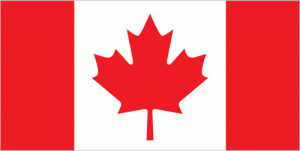
Practice-Based Comics Programmes in Canada
Camosun College – Comics & Graphic Novels certificate program
Further Information: camosun.ca/learn/programs/comics-graphic-novels
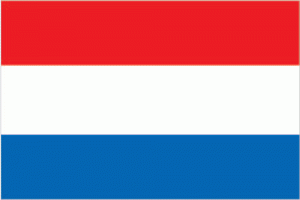
Practice-Based Comics Programmes in Denmark
The Animation Workshop – BA/BFA in Graphic Storytelling
Further Information: animationworkshop.via.dk/en/programs-and-courses/graphic-storytelling
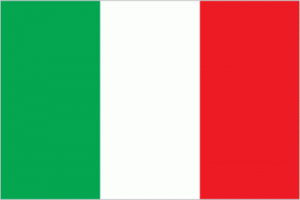
Practice-Based Comics Programmes in Italy
LUCA School of the Arts Brussels – MA/MFA in Graphic Storytelling
Further Information: www.luca-arts.be/nl
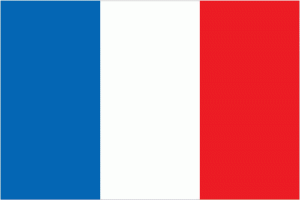
Practice-Based Comics Programmes in France
European School of Visual Arts – International Course in Comic Art
Further Information: www.eesi.eu/site/spip.php?article1794

Practice-Based Comics Programmes in The Netherlands
ARTEZ Zwolle – BA in Comics Design
Further Information: www.artez.nl/en/course/comic-design

Practice-Based Comics Programmes in the United Kingdom
Staffordshire University – BA in Cartoon and Comic Arts
Further Information: www.staffs.ac.uk/course/cartoon-comic-arts-ba
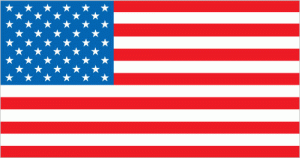
Practice-Based Comics Programmes in the United States
California College of the Arts – MFA in Comics
Further Information: www.cca.edu/humanities-sciences/mfa-comics
Center for Cartoon Studies, Vermont – MFA & Certificate Programs
Further Information: www.cartoonstudies.org
Columbus College of Art & Design – Minor in Comics & Narrative Practice
Further Information: www.ccad.edu/academics/comics-narrative-practice
Kennesaw State – BFA in Sequential Art
Further Information: arts.kennesaw.edu/visual-arts/academics/degrees-concentrations/applied_arts/sequential_art.php
The Kubert School – Cartoon & Graphic Arts
Further Information: www.kubertschool.edu
Michigan State University – Minor in Comic Art & Graphic Novels
Further Information: reg.msu.edu/AcademicPrograms/ProgramDetail.aspx?Program=5777
Minneapolis College of Art & Design – BFA in Comic Art
Further Information: mcad.edu/academic-programs/comic-art
New Hampshire Institute of Arts – BFA in Comic Arts
Further Information: www.nhia.edu/undergraduate-studies/undergraduate-programs/comic-arts
Savannah College of Art & Design – BA/BFA/MA/MFA in Sequential Art
Further Information: www.scad.edu/academics/programs/sequential-art
Sequential Artists Workshop – Gainesville, Florida
Further Information: www.sequentialartistsworkshop.org
School of Visual Arts – BA in Cartooning
Further Information: www.sva.edu/undergraduate/cartooning
University of Wisconsin-Stout (US) BFA in Comics & Sequential Art
Further Information: www.uwstout.edu/programs/bfa-entertainment-design
Comics-Inclusive Programmes
As mentioned above, comics scholarship is a multi-disciplinary scholarly endeavour. One can find comics scholars and students interested in the study of comics in a wide range of disciplines in the Humanities faculties in universities in North America, Europe, and Asia.
The kinds of programs that might be called comics-inclusive include but are not limited to Media Studies, Linguistics, Language Studies, Literary Studies, Visual Studies, Art History, and History. Additionally, new programmes in the Medical Humanities and Graphic Medicine specifically, extend the list to include the Social Sciences and Sciences faculties in several universities.
For this “Comic-Inclusive Programme” section, I have in places linked to the institution home page, as in some cases web links have been changed when taken on by new staff or due to web site re-design
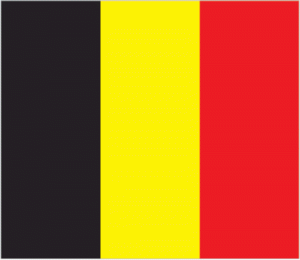
Belgium
· Programs in Literary and Cultural Analysis (BA), Cultural Analysis (MA), Media Studies (BA/MA), and English Language and Culture (BA/MA)
· Research Areas: comics studies, comics theory, and comics and identity.
Catholic University Leuven (Katholieke Universiteit Leuven)
· Programmes in Literary Theory and Cultural Studies (BA/MA)
· Research Areas: comics studies, comics theory, and comics aesthetics

Canada
Memorial University of Newfoundland
· Programs in English (MA/PhD) and Creative Writing (MA)
· Research Areas: comics theory, graphic memoir, narrative theory of comics, comics history
· Programs in English and Media Studies
· Research Areas: comics adaptations and transmedia, and comics and identity politics
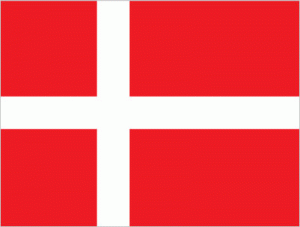
Denmark
· Programmes in Media Studies (BA/MA)

The Netherlands
Free University Amsterdam (Vrije Universiteit Amsterdam)
· Programmes in Literature and Society (BA), Literature in a Visual Culture (MA)
· Research Areas: comics studies, the theory and aesthetics of comics, and comics and visual culture
· Program in Cognition and Communication (PhD), Communication and Information Science (MA), and Language and Communication (MA)
· Research Areas: linguistics, cognitive psychology, cognitive neuroscience in visual language and comics, visual narration, and multimodal communication
· Programmes in Literary Studies (BA/MA), English Language and Culture (BA/MA)
· Research Areas: comics studies, comics theory, comics and identity, and comics as literature
Thailand
The International Program of the Faculty of Communication Arts, Chulalongkorn University – Creative Writing – Graphic Writing: Non-Fiction Comics” and the “Creative Writing – Graphic Writing: Experimental Comics”
Bangkok, Thailand
Further Information: fromdusktilldrawnblog.wordpress.com
Nicolas Verstappen, a lecturer at the Faculty of Communication Arts, Chulalongkorn University, is teaching “Creative Writing – Graphic Writing: Non-Fiction Comics” and the “Creative Writing – Graphic Writing: Experimental Comics” – three-credit practice-based courses on comics, aimed at students without any drawing formation. His “Imaginative Media” course is a three-credit comparative media course with half the lessons being dedicated to “Traumics” (theory and practice of depicting Psychic Trauma in comics form), aimed at students without any drawing formation.
He also delivers some other courses, such as “Introduction to Communication Studies”, also include the creation of comics pages. The “Thai Culture for Communication: Graphic Narratives” module (five weeks) is dedicated mostly to the history of graphic narratives, cartoons, comics and graphic novels in Thailand over the past century.

United Kingdom
· Programs in the Art, Media, and American Studies (MA/PhD)
· Research Areas: autobiographical comics, comics and representation, comics and politics, international cross-media comics, and comics adaptations

United States
· Program in American Studies
· Research Areas: comics and archives, comics and war, comics and identity politics
· Programs in English (MA/PhD)
· Research Areas: multiethnic graphic narrative and contemporary literature
· Program in Communication and Media (MA)
· Research Areas: comics adaptations and transmedia, and comics and identity politics
· Program in Media and Popular Culture Track (MA)
· Research Areas: nonfiction comics, persuasion and propaganda in comics, psychology and comics, and comics fandom
· Programs in English (MA/PhD)
· Research Areas: history and theory of comics, and comics pedagogy
· Programs in Library Science (MA/PhD) and Information Science (MA) and Art History (MA/PhD)
· Research Areas: computational, digital, and Digital Humanities approaches to comics studies, annotation of comics and readership/fandom studies, comics in libraries, museums, and other cultural heritage institutions, comics as material objects and documents, and comics interfaces and digital comics.
Indiana University of Pennsylvania
· Programs in Literature & Criticism (MA/PhD), Composition and Applied Linguistics (PhD)
· Research Areas: literary history of comics and the graphic novel, comics pedagogy, adaptation, cultural studies, graphic memoir, and autobiographical comics.
University of Southern California
· Program in Comparative Studies in Literature and Culture (PhD)
· Research Areas: cultural comparison, comics theory and aesthetics
University of Wisconsin-Milwaukee
· Programs in English (MA/PhD) or History (MA/PhD)
· Research Areas: comics theory and aesthetics
Do you have information about Comic Studies Courses? Please send us your information using this form, thank you
WEB LINKS
• Comics Programs – Spin Weave and Cut – compiled by Nick Sousanis
Nick Sousanis is a comics artist and educator, and a professor of Humanities & Liberal Studies at San Francisco State University. His Spin Weave and Cut site provides an invaluable resource for comic studies and more, and the linked page includes information on Scholarships and Awards for Comic Creators
ComicsResearch.org primarily covers book-length works about comic books and comic strips, from “fannish” histories to academic monographs, providing detailed information and guidance on further research. Each entry includes the book’s Table of Contents as well as (if applicable) a list of comics works reprinted in it (and their sources, sometimes undocumented), other general notes on content and organisation, ISBN numbers, and reviews – either included on these pages, listed from print sources, or linked to from on-line sources. Books in any language, about comics from any country, are included. If you would like to suggest additional titles to include, or if you have a review that you’d like to contribute, please contact them
Compiled with thanks to Barbara Chamberlain, William Grady, Alex Fitch at Panel Borders, Mel Gibson, Simon Grennan and the UK Comic Scholars Group
This page has replaced our previous resource “Creating Comics: Learning the Comics Art”, which had been visited over 6500 times
